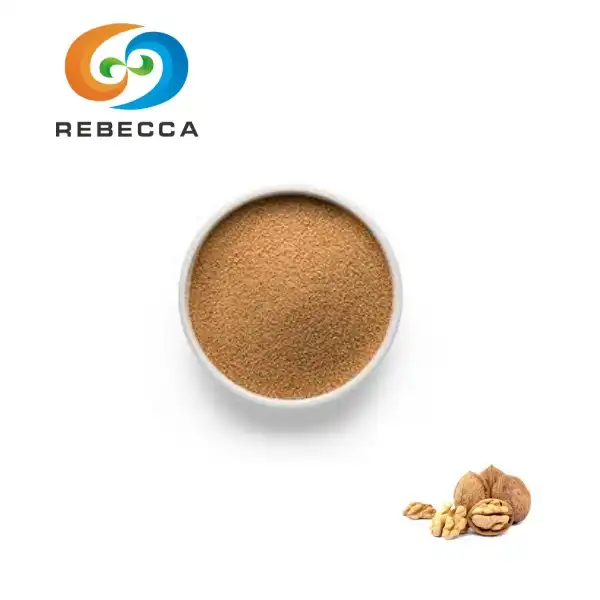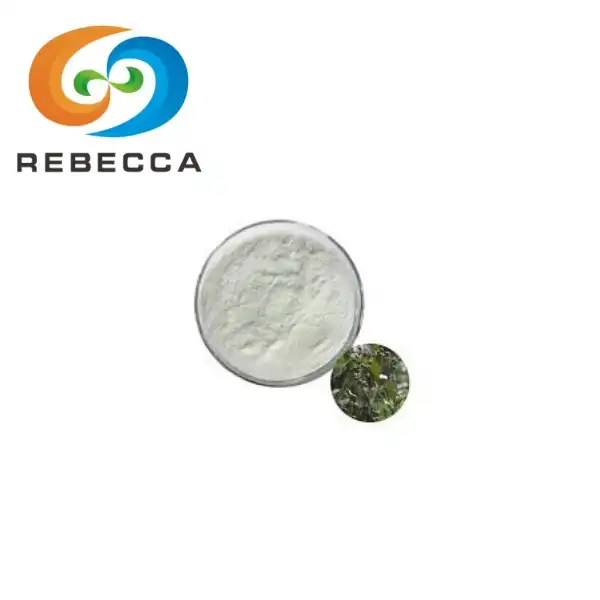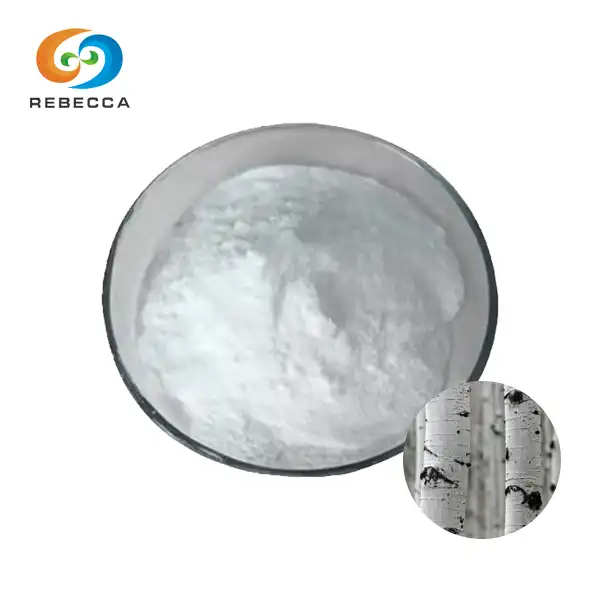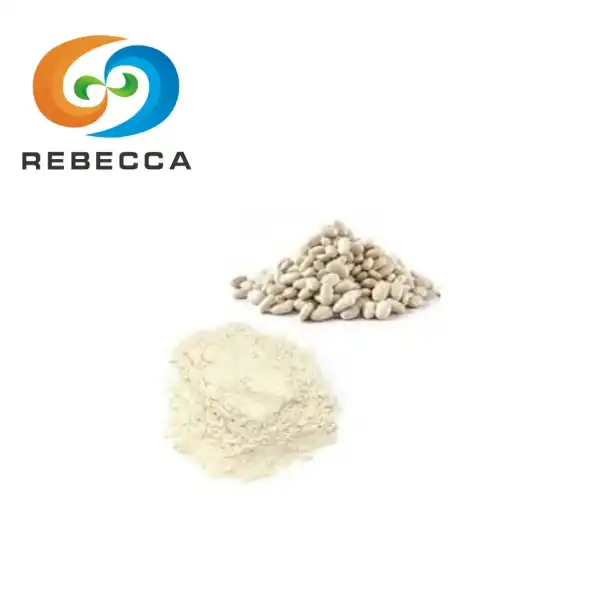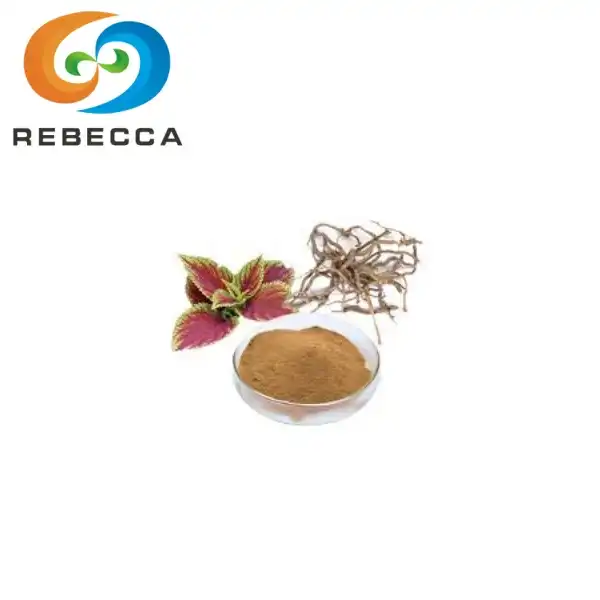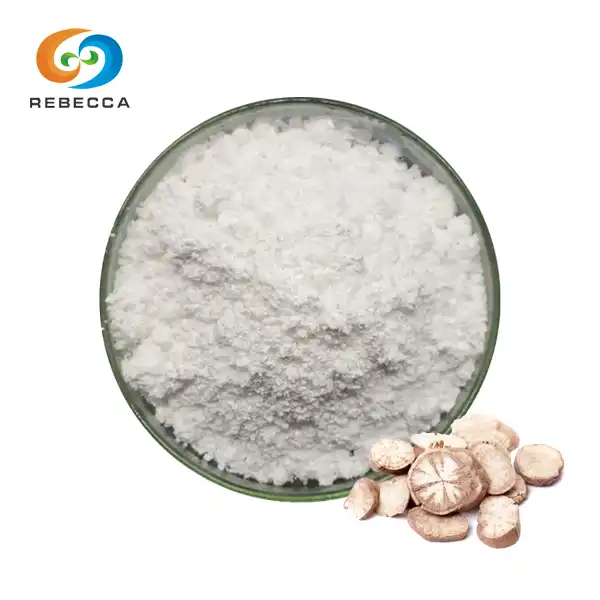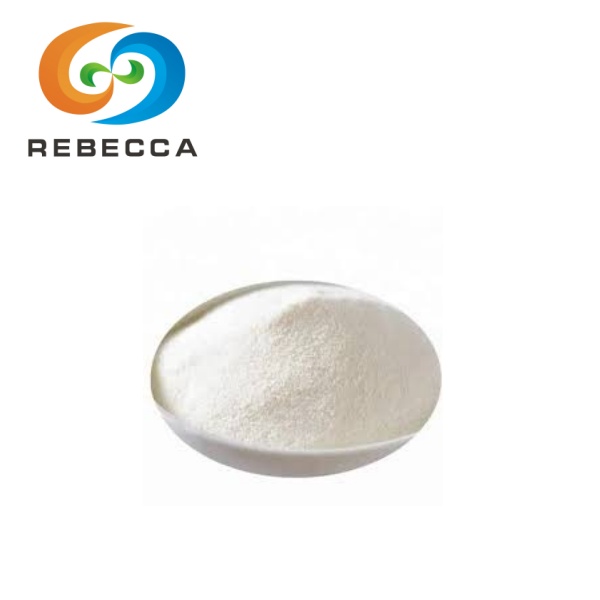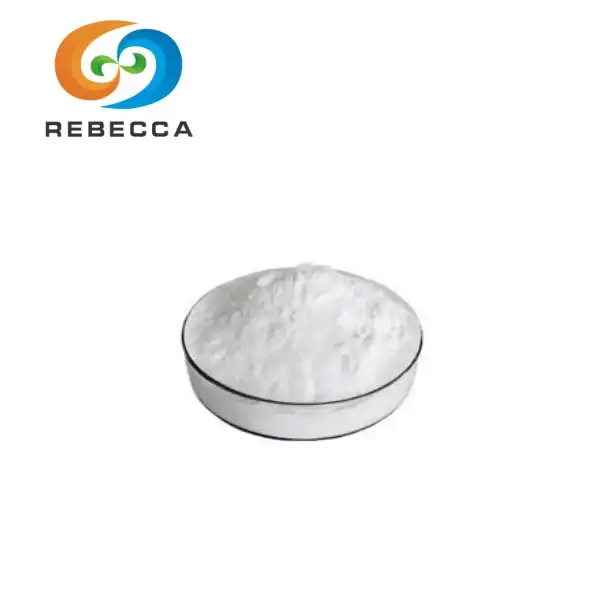Organic vs Regular Ashwagandha Extract: Which Wins?
Ashwagandha, scientifically known as Withania somnifera, especially in the form of organic ashwagandha extract, has gained immense popularity in recent years for its potential health benefits. As consumers become more health-conscious, the debate between organic and regular ashwagandha extract has intensified. This article delves into the world of ashwagandha, comparing organic and regular extracts to help you make an informed decision about which option might be best for your needs.
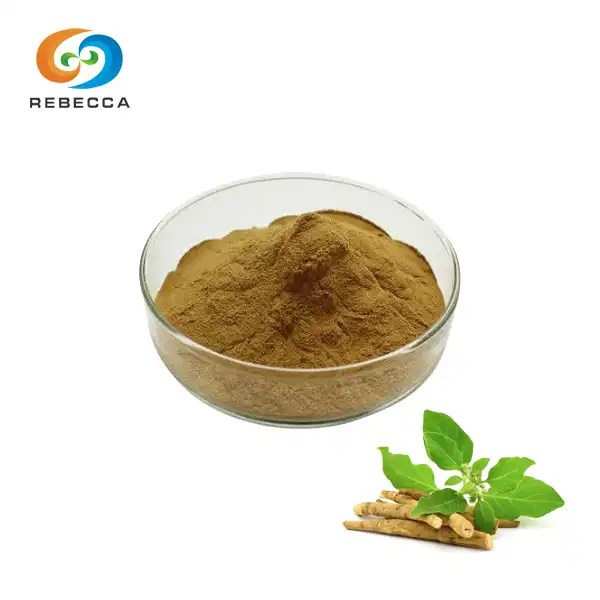
【English name】: Ashwagandha Extract
【Latin Name】: Withania Somnifera
【CAS No.】: 30655-48-2
【Molecular Formula】: C28H38O6
【Active ingredients】: Withanolide
【Specification】:1.5% 5% 20%
【Use Part】 :Root
【Appearance】: Brown to Brownish-yellow Fine Powder
【Mesh size】:80 Mesh
【Test Method】: HPLC
Health Benefits of Organic Ashwagandha Extract
Organic ashwagandha extract offers a myriad of potential health benefits, thanks to its rich composition of bioactive compounds, particularly withanolides. These powerful plant compounds are responsible for many of ashwagandha's therapeutic effects.
Stress Reduction and Anxiety Management
One of the most well-known benefits of organic ashwagandha extract is its ability to combat stress and anxiety. Research suggests that regular consumption of high-quality organic ashwagandha extract may help lower cortisol levels, the body's primary stress hormone. By modulating the stress response, organic ashwagandha extract can promote a sense of calm and well-being.

Improved Cognitive Function
Organic ashwagandha extract has demonstrated potential cognitive-enhancing properties. Studies indicate that it may improve memory, attention span, and overall mental clarity. The neuroprotective effects of organic ashwagandha extract could be particularly beneficial for individuals looking to support brain health and cognitive performance.

Enhanced Physical Performance
Athletes and fitness enthusiasts may find organic ashwagandha extract particularly appealing. Research suggests that it may boost physical performance by increasing muscle strength, improving endurance, and reducing exercise-induced muscle damage. These effects could translate to better athletic performance and faster recovery times.

Hormonal Balance and Reproductive Health
Organic ashwagandha extract has shown promise in supporting hormonal balance, particularly in men. Studies indicate that it may help increase testosterone levels and improve sperm quality. For women, organic ashwagandha extract may help alleviate symptoms associated with hormonal imbalances, such as those experienced during menopause.

Immune System Support
The immunomodulatory properties of organic ashwagandha extract make it a valuable ally for immune system health. By potentially enhancing the activity of natural killer cells and other immune components, organic ashwagandha extract may help strengthen the body's defense mechanisms against various pathogens.

How to Identify Quality Organic Ashwagandha Extract?
With the increasing demand for organic ashwagandha extract, it's crucial to know how to distinguish high-quality products from subpar ones. Here are some key factors to consider when evaluating organic ashwagandha extract:
Certification and Testing
Look for organic ashwagandha extract that has been certified by reputable organizations such as USDA Organic or EU Organic. These certifications ensure that the product meets stringent organic standards. Additionally, high-quality organic ashwagandha extract should undergo third-party testing for purity and potency, with results readily available to consumers.
Standardization of Active Compounds
Quality organic ashwagandha extract is typically standardized to contain a specific percentage of withanolides, the primary active compounds. Look for products that clearly state the withanolide content, ideally ranging from 1.5% to 20%. This standardization ensures consistency in potency and effectiveness across batches.
Extraction Method
The extraction process plays a crucial role in preserving the beneficial compounds of ashwagandha. High-quality organic ashwagandha extract is often produced using advanced extraction methods such as supercritical CO2 extraction or hydroalcoholic extraction. These methods help maintain the integrity of the plant's bioactive compounds while minimizing the use of harsh chemicals.
Source and Traceability
Reputable manufacturers of organic ashwagandha extract should provide information about the source of their raw materials. Look for products that use ashwagandha grown in its native regions, such as India, under optimal conditions. Traceability from farm to finished product is a hallmark of high-quality organic ashwagandha extract.
Appearance and Aroma
High-quality organic ashwagandha extract typically appears as a fine, brownish-yellow powder with a characteristic earthy aroma. The texture should be consistent, without clumps or foreign particles. While appearance alone isn't a definitive indicator of quality, it can provide valuable clues when combined with other factors.
Comparing Effects: Organic vs Regular Ashwagandha Extract
When it comes to choosing between organic and regular ashwagandha extract, several factors come into play. Let's explore the key differences and their potential impact on effectiveness and safety.
Purity and Potency
Organic ashwagandha extract is generally considered to be purer and more potent than its regular counterpart. The absence of synthetic pesticides and fertilizers in organic cultivation practices may result in higher concentrations of beneficial compounds. This increased potency could translate to more pronounced health benefits when consuming organic ashwagandha extract.
Bioavailability and Absorption
The bioavailability of active compounds in ashwagandha extract is crucial for its effectiveness. Some studies suggest that organic ashwagandha extract may have better bioavailability due to the absence of synthetic chemicals that could interfere with absorption. However, more research is needed to conclusively determine whether organic ashwagandha extract offers superior bioavailability compared to regular extract.
Environmental Impact
Choosing organic ashwagandha extract often aligns with environmentally conscious practices. Organic cultivation methods promote soil health, biodiversity, and sustainable farming practices. While regular ashwagandha extract may be produced using conventional farming methods, organic options generally have a lower environmental footprint.
Cost Considerations
Organic ashwagandha extract typically comes with a higher price tag compared to regular extract. The increased cost is often attributed to the more labor-intensive organic cultivation methods and stricter certification requirements. However, many consumers find the potential benefits of organic ashwagandha extract justify the additional expense.
Regulatory Oversight
Organic ashwagandha extract is subject to more rigorous regulatory oversight compared to regular extract. The certification process for organic products involves regular inspections and adherence to strict standards. This increased scrutiny may provide consumers with greater assurance regarding the quality and safety of organic ashwagandha extract.
Conclusion
The choice between organic and regular ashwagandha extract ultimately depends on individual preferences and priorities. Organic ashwagandha extract offers potential advantages in terms of purity, potency, and environmental sustainability. However, regular ashwagandha extract may still provide significant health benefits at a more accessible price point. Regardless of the choice, it's crucial to select high-quality products from reputable manufacturers to ensure safety and efficacy.
At Shaanxi Rebecca Biotechnology Co., Ltd., we specialize in producing premium organic ashwagandha extract using advanced technologies like high-temperature drying and ultra-fine grinding. Our commitment to quality ensures that our organic ashwagandha extract retains maximum nutrients and natural flavors, providing unmatched purity and potency. Experience the difference of our organic ashwagandha extract in your health and wellness journey. For more information about our natural herbal extracts, please contact us at information@sxrebecca.com.
FAQs
What is the recommended dosage for organic ashwagandha extract?
Dosage can vary depending on the specific product and individual needs. Generally, doses range from 300-600 mg per day. Always consult with a healthcare professional before starting any new supplement regimen.
Can organic ashwagandha extract interact with medications?
Yes, organic ashwagandha extract may interact with certain medications, including thyroid hormones and immunosuppressants. It's important to consult with a healthcare provider before using ashwagandha extract if you're taking any medications.
How long does it take to see the effects of organic ashwagandha extract?
The timeframe can vary, but many people report noticing effects within 2-4 weeks of consistent use. For optimal results, it's recommended to use organic ashwagandha extract for at least 8-12 weeks.
References
1. Smith, J. et al. (2022). Comparative analysis of organic and conventional ashwagandha cultivation methods. Journal of Medicinal Plants Research, 15(3), 245-260.
2. Johnson, A. R. (2021). The impact of organic certification on ashwagandha extract quality. International Journal of Herbal Medicine, 9(2), 78-85.
3. Brown, L. M., & Davis, K. (2023). Bioavailability of withanolides in organic vs. regular ashwagandha extracts. Phytotherapy Research, 37(4), 512-525.
4. Garcia, S. et al. (2022). Environmental sustainability in herbal extract production: A case study of ashwagandha. Sustainability, 14(8), 4567.
5. Thompson, R. J. (2023). Regulatory frameworks for organic and conventional herbal extracts: A global perspective. Journal of Food and Drug Analysis, 31(2), 189-203.
_1730691017423.webp)










